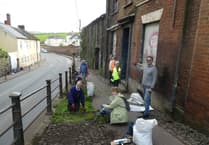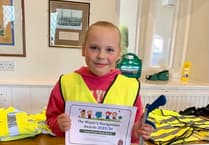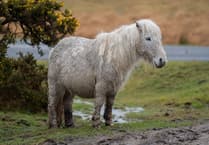PRESSURE is to be put on South West Water to fund water testing kits so it can carry out regular monitoring on the Taw and Torridge rivers and their tributaries as North Devon Council steps up its campaign for clean water sources.
It follows a public meeting organised by the council in February when organisations including South West Water and the Environment Agency agreed to work together to find solutions.
The water company, which reported 38,000 sewage spills in 2022, is investing £2.8 billion into improving water quality with a pledge to fix storm overflows at beaches and eradicate pollution.
But it says it is only responsible for 30 per cent of water quality issues, with agricultural and surface water run-off from developments accounting for many incidents.
Eighty-three out of the 98 bodies of water tested in North Devon have failed to meet good ecological standards.
While the district’s beaches are mostly rated excellent, rivers and steams have most problems.
An army of volunteers in the district have been trained as “citizen scientists” by the Westcountry Rivers Trust to test water for phosphates and add their findings to a national database.
When 12 or more surveys are taken over a year, a scorecard is produced for the catchment, summarising the state of the water.
Cllr Peter Jones (Ind, Witheridge) who has been driving North Devon’s approach, told the council’s policy development committee that there is no shortage of people who want to become volunteers. But funding kits is more challenging as they cost around £40 each.
“I don’t think it will be a problem to get a venue and organise the training, it’s the kits we need, and it would be good if South West Water offered to help us fund them. It’s hard to justify using council money on this at the moment.”
Other grants will be sought and parish councils will be asked to contribute. The committee was told that a holiday complex at Croyde Bay is supporting Georgeham Parish Council to test local water courses.
Members agreed to support the West Country Rivers Trust on social media, and invite stakeholders to another meeting within the next year to discuss progress.
They will also ask planning officers how they think changes can be made to stop pollution occurring from new developments. They are prepared to lobby South West Water and the government if legislation needs to change.
The water company says it is looking at working with councils to find green solutions like reed bed sewage systems which treat waste water naturally before it is discharged back into the environment.
Councillors said old combined sewage systems which meant that rainwater, domestic sewage and industrial waste water are conveyed in the same pipes to sewage treatment works are a big part of the problem when they overflow, dumping raw sewage in rivers and coastal waters.
Alison Stephenson
LDRS




